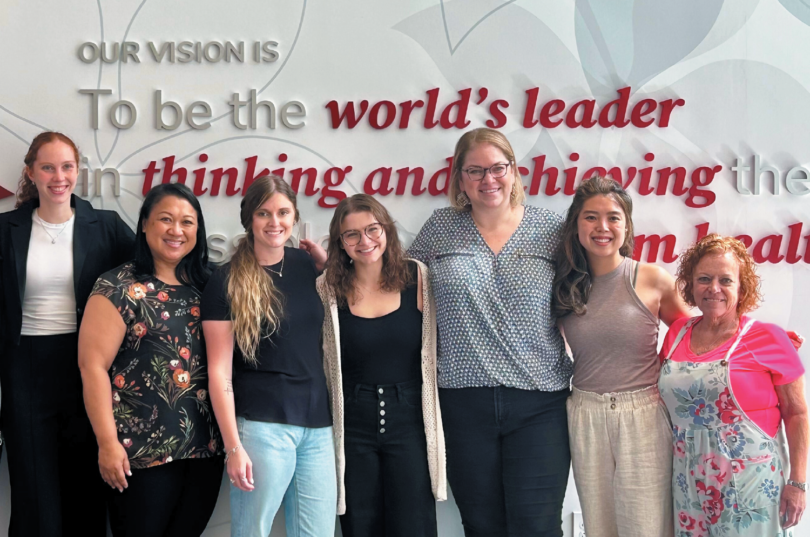Nurses are at the heart of everything that happens in hospitals and clinics. At Shriners Children’s, nurses are encouraged to investigate the best ways to care for patients. This includes everything from advanced procedures to everyday practices like changing bandages, meeting nutritional needs and managing pain.
To support this, Shriners Children’s has created a formal, systemwide program that encourages nurses to ask questions about current practices to improve patient outcomes. This approach, called evidence-based practice (EBP), begins when nurses have a question or are curious about their work. They search for research to see if the latest evidence supports their practice. If the evidence supports a better way, the nurse proposes implementing the change and evaluates how it works. If no evidence exists, the next step is to design a research study to find the best solution. Evidence-based practice is common in healthcare. At Shriners Children’s, the Nursing Research and EBP program allows nurses to improve their quality of care.
Evidence-based practice defined
“In many healthcare settings, including Shriners Children’s, there are traditional practices, often called ‘sacred cows,’ that are followed simply because ‘we’ve always done it this way,’” said Marni Kellogg, Ph.D., RN, CPN, CNE, corporate nurse scientist at Shriners Children’s. “EBP challenges these traditions and ensures our care is based on evidence, not habit.” Culture of Inquiry Studies show that EBP significantly improves patient outcomes and lowers healthcare costs. “Evidence-based practice helps nurses find research to support the best ways to do their jobs,” said Dr. Kellogg. “It’s about ensuring we’re doing what’s best for the patient.”
To help launch the initiative, Shriners Children’s hosted a presentation livestreamed to all nurses across the healthcare system by evidence-based practice expert Bernadette Melnyk, Ph.D., APRN-CNP, FAANP, FNAP, FAAN, founder of the Helene Fuld Health Trust National Institute for Evidence-based Practice in Nursing and Healthcare at Ohio State University.
“EBP is a problem-solving approach to healthcare,” said Dr. Melnyk. “It combines the best research evidence with clinical expertise while considering the patient’s values and preferences.”
Elevating care through curiosity
Last June, 16 Shriners Children’s nurses attended a five-day training at the Fuld Institute. They are now part of the Shriners Children’s Nursing Research and Evidence-Based Practice Council, which provides mentorship for other nurses in EBP and encourages curiosity about clinical practices. Engaging nurses in their practice helps connect them to their workplace. When nurses feel empowered and appreciated, they are more likely to stay and continue improving the care they provide. The benefits for Shriners Children’s patients and their families are clear. Jennifer Fabian, BSN, RN, CNOR, an EBP mentor at Shriners Children’s Hawai‘i, attended the training. “The children we care for and their families inspire me to integrate evidence-based practice into my work,” she said. “I imagine myself in the shoes of these families and want to ensure their care is informed by the best evidence available.”





